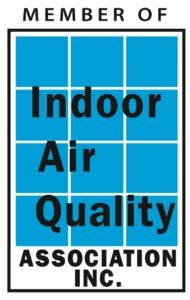
- Letting a water faucet drip can prevent water damage from frozen pipes. During cold weather, release pressure in the water system by allowing water drip from both hot and cold lines. If the pipes do freeze, dripping water will reduce the likelihood of a rupture.
- Winterize outside faucets to prevent freezing and burst pipes. Water damage to the inside of homes can be caused by outside faucets. Always disconnect the garden hose from the outside faucet then determine if your faucet is frost-free. If your outdoor faucet is not frost-free, your outside faucet water line needs to be turned off and drained out.
- Make sure all pipes are insulated. Especially pipes on outer walls, crawl spaces, attics, or any pipe that is around a hole to the outside air are most vulnerable to freezing. Purchase foam tape and pipe insulation from any hardware store and install around these susceptible pipes to prevent them from freezing.
- Turn up the thermostat. A good rule of thumb is to find the coldest temperature in your house where pipes are located and make sure your temperature is at least 32 degrees Fahrenheit or above.
- Open kitchen and bathroom cabinet doors under sinks (especially if there are pipes are located on outside walls.) Keeping cabinet doors opened will allow warmer room air to circulate these uninsulated pipes and prevent them from freezing.
- Keep garage doors closed if there are water supply lines in the garage. Keeping the garage door closed and the temperature warmer than 32 degrees Fahrenheit will help insulate your home and prevent pipes from freezing.
- Seal leaking windows, doors, and any other areas that have cold leaking issues. When temperatures are cold during a polar vortex, windows that have gusts of wind come through and hit pipes can cause them to freeze. Caulk or inject foam sealant around windows that leak air. This will prevent pipes from freezing and save money on energy costs.
- Monitor water pressure. Watch for inconsistent water pressure. Irregular water pressure could be a sign of severe plumbing problems such as plumbing blockages and could mean the pipes are more at risk to freeze. If different water pressure is noticed, identify, and fix the problem to prevent frozen pipes.
- Know where the main water valve shut-off is located. If a pipe breaks, turn the water shut-off valve off immediately to prevent more water damage. Wasting time to find the shut-off after a loss has occurred could cost hundreds of dollars.
- Always have emergency contact numbers on-hand. Always have the numbers to the insurance agent, the licensed plumber and of course, The IEP Group: (859) 940-3466 in Central, KY; (502) 264-3028 in Louisville and Southern Indiana, and (513) 800-8315 for Southern Ohio.


